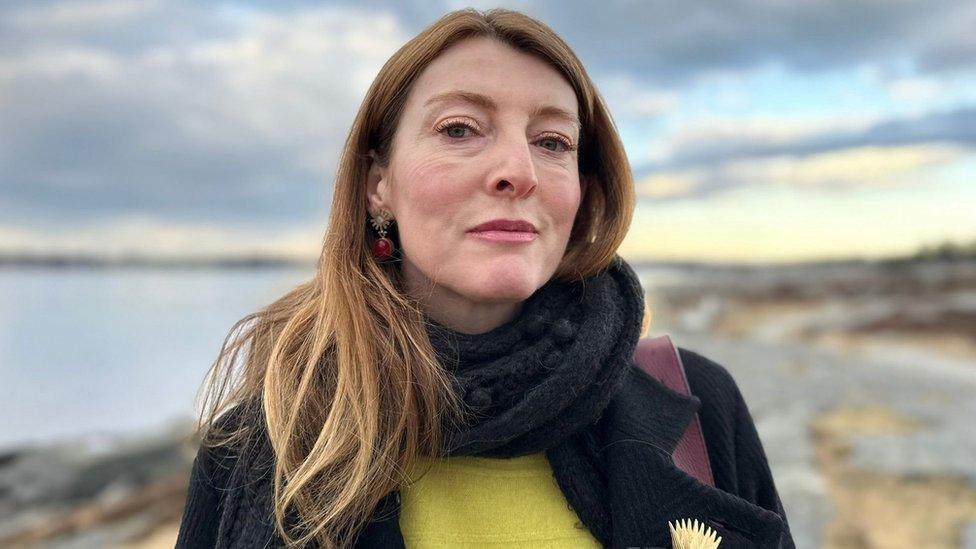Rig death families to get compensation from Norway
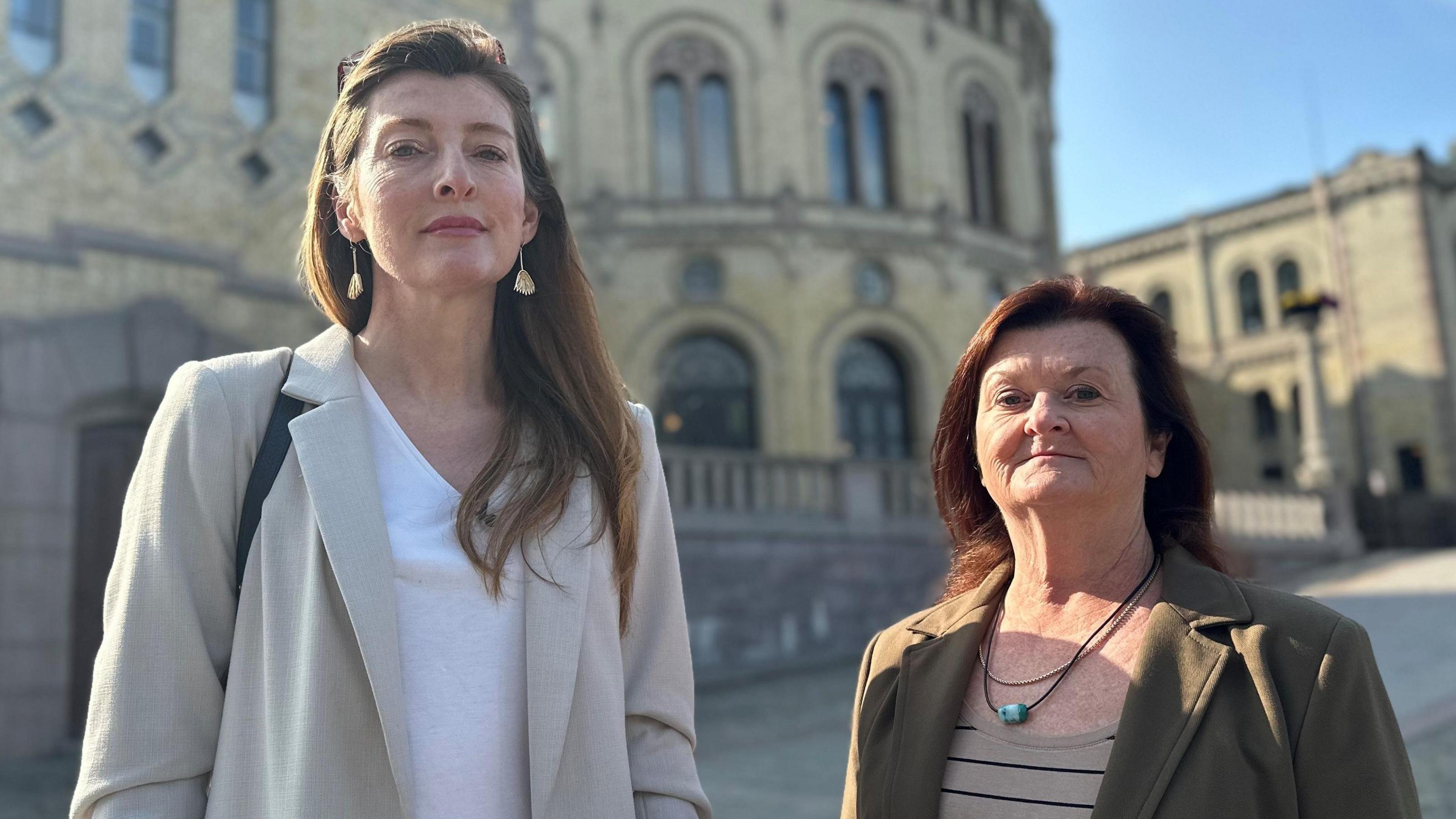
Laura Fleming and Tara Pender both lost their fathers in the Kielland disaster
- Published
Survivors and families of those killed in an oil rig disaster 45 years ago will finally get compensation from the Norwegian state after a close vote passed in the country's parliament.
More than 120 people died, including 22 Brits, when the Alexander Kielland floating platform capsized in the North Sea oil fields on 27 March 1980.
Opposition parties in the Norwegian house, the Storting, who filed the compensation motion, said the disaster was still an "open wound" for the country which needed closing.
Among those attending the debate in Oslo were Brits Laura Fleming and Tara Pender, whose fathers died.
Ms Fleming, from Durham, previously said there were unanswered questions about the disaster, which killed her father Michael and five of his compatriots from the Cumbrian village of Cleator Moor.
The motion had been opposed by the government but passed through the Storting by 53 votes to 51, after 11 MPs engaged in a nearly hour-long debate watched by about 40 members of the Kielland Network campaign group.
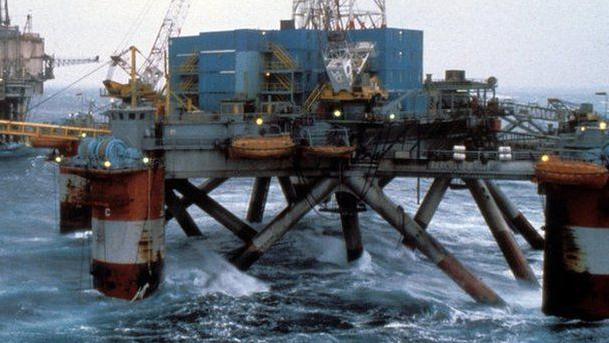
The Alexander Kielland accommodation platform capsized in March 1980
Exchanging tearful hugs with other members of the network, Ms Fleming said she was "ecstatic".
"It is easy to get lost in the whole battle of everything and to forget what you are fighting for, but really it's for justice and acknowledgement of what happened," Ms Fleming said.
She said the compensation was not about the money, but rather the "principle" that after 45 years of being "ignored and neglected", the majority of the Norwegian parliament was now saying "yes, we should have done better by you".
Ms Pender, from near Nottingham, was 13 when her father PJ Pender died and wore a necklace containing a piece of the rig when she went to the Storting Building in central Oslo.
She said she was "overwhelmed" with emotion and "a bit shocked".
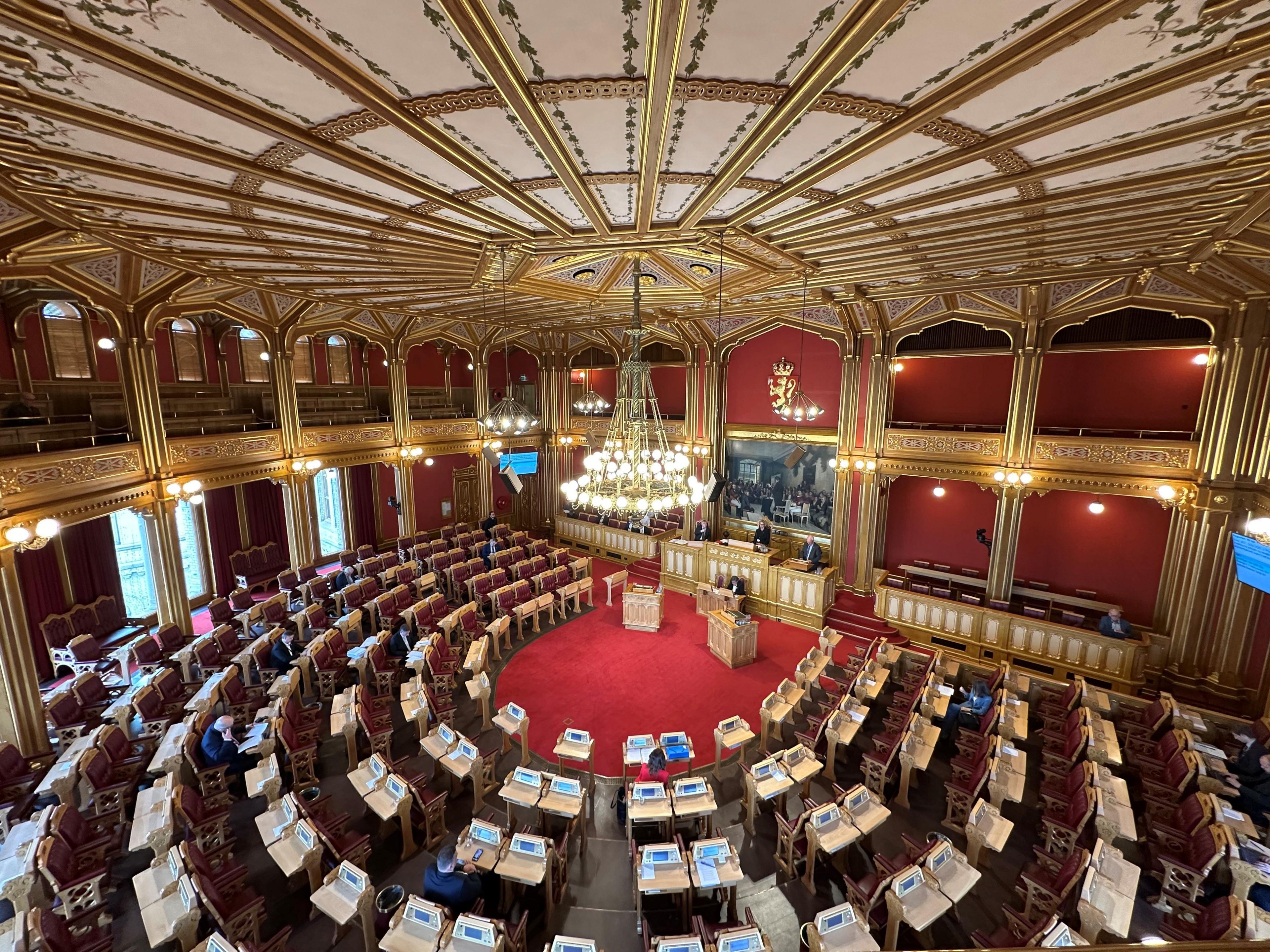
The vote was held in the Storting Building in central Oslo
The four-year-old platform was being used as an accommodation platform for the nearby Edda rig in the Ekofisk oil field about 200 miles (320km) off the coast from Stavanger, Norway, when one of its legs broke off during a storm.
A 1981 Norwegian inquiry attributed the disaster to a crack in one of the braces caused during its construction in France, but the manufacturers said it had not been maintained or anchored properly by its operators.
Some people received compensation at the time from the company which ran the oil rig, Phillips Petroleum, but campaigners said the Norwegian state should also accept responsibility.
A University of Stavanger study published in 2025 said families and the 89 survivors were let down by official investigations, while a 2021 review by the Norwegian auditor general found "highly reprehensible" failures to hold any of the companies involved in the disaster to account, or to support families and survivors.
The Norwegian government apologised and funded the study to assess the impact on those affected.
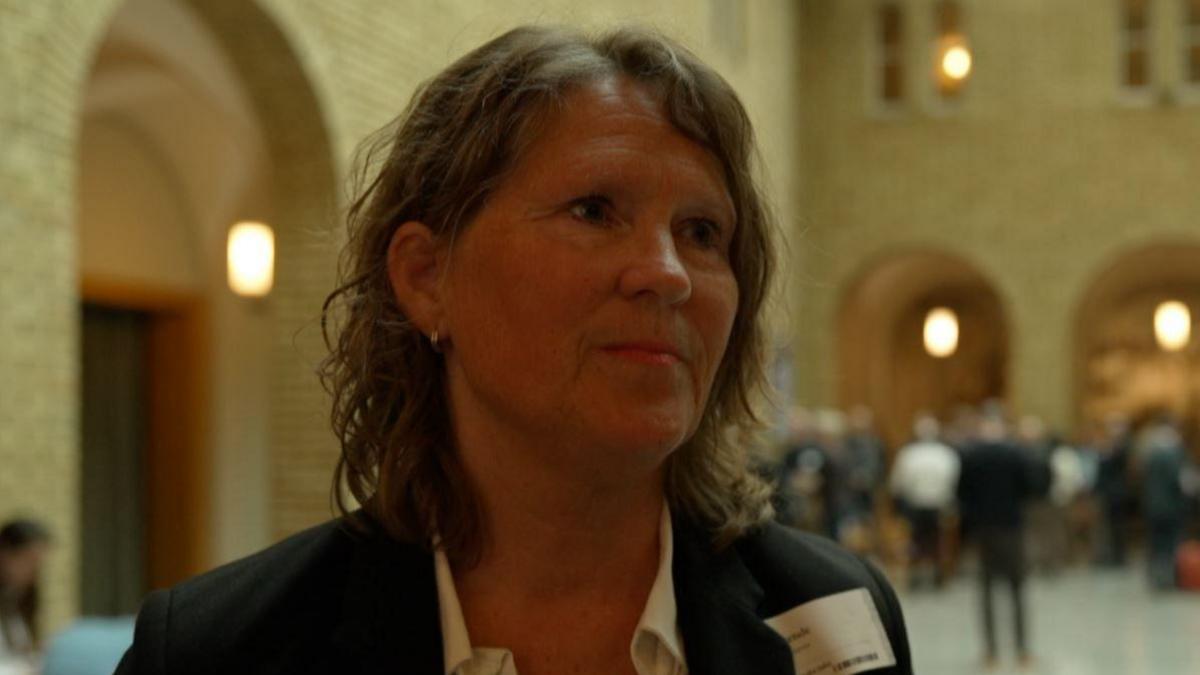
Merete Haslund is one of the leaders of the Kielland Network
Merete Haslund, a leader of the Kielland Network, was 13 when her engineer father was killed on his first trip to the rig.
She said the campaign group began in 2016 to get the "whole truth", which they were still fighting for, and financial recompense for the survivors and families from the Norwegian state.
Ms Haslund said the compensation would "mean a lot to people", adding: "Very many people have been suffering not just mentally but also economically."
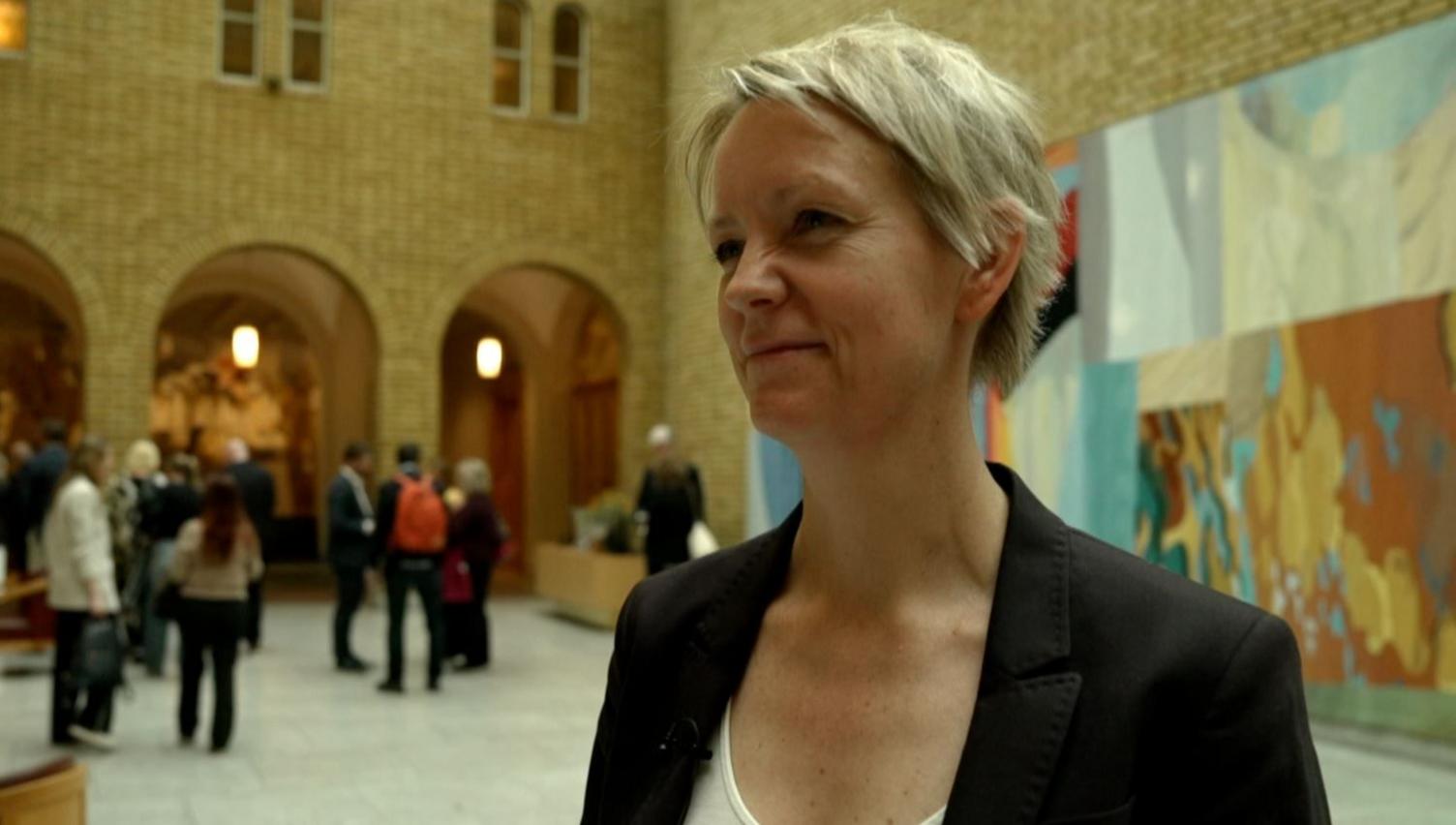
Norwegian MP Ingrid Fiskaa said the Kielland disaster was still having an effect on many people
Ingrid Fiskaa, the foreign policy spokesperson for the Socialist Left Party and an MP for the Rogaland county which contains Stavanger, was one those putting forward the motion.
Ms Fiskaa, who was three years old when the disaster occurred, said it affected a lot of people in her region and was "still an open wound".
"What we are really hoping for is today will start the work to close that wound," she told the BBC.

The Storting has 169 members and meets in the Storting Building in Oslo
She told the story of one of her constituents, a 70-year-old man who survived but suffered horrific injuries to his mouth and teeth which had seen him rack up large dental debts.
"The most important thing for him is that the state never has taken responsibility," Ms Fiskaa said, adding previous governments had "had a really hard time admitting the state has done this wrong".
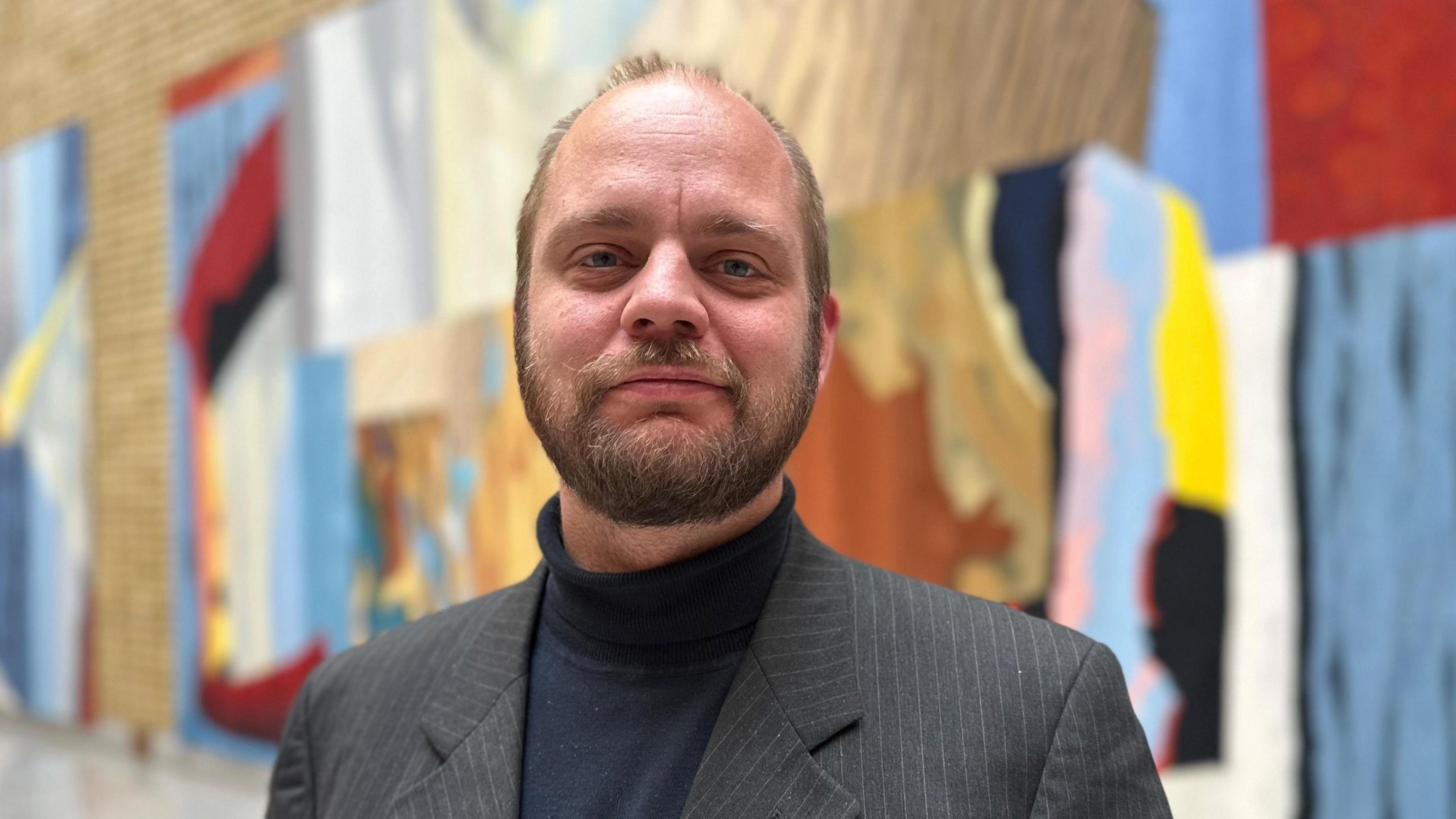
Norwegian MP Mimir Kristjansson was also behind the motion
Mimir Kristjansson, an MP for the Red Party representing Rogaland, said the vote was a "historic day" and the compensation was 45 years overdue.
Mr Kristjansson, whose speech sparked a round of applause from the Kielland Network members watching from the Storting's public gallery, said the disaster was an "open wound in the national memory of the oil industry".
"Oil has made Norway a very, very rich country but it has also cost a lot of lives," he told the BBC.
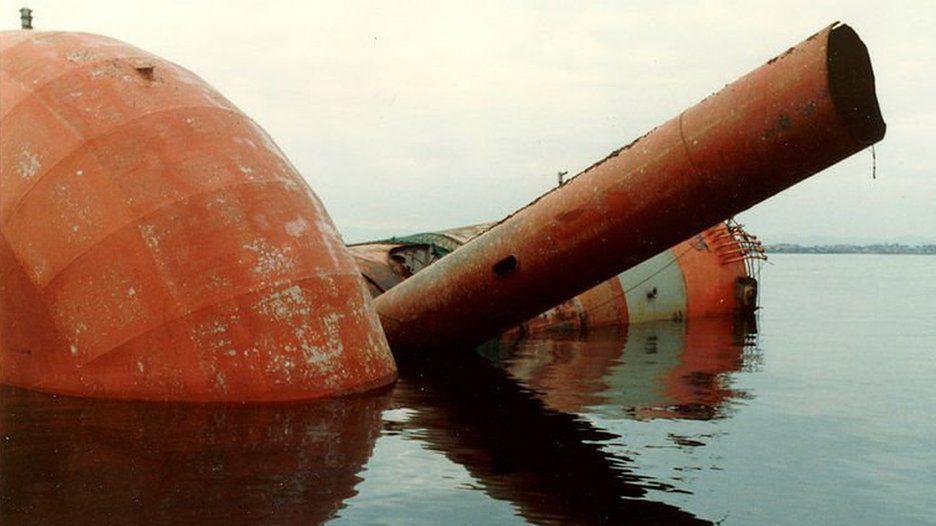
A leg snapped off the platform causing it to capsize
Mr Kristjansson said a lot of people lost friends and family in the disaster and the Norwegian state had a "terrible track record of not taking care of the people we send out in very dangerous conditions to work at sea for us".
The compensation was "not just about the money" but represented a "way for the state to take responsibility" for its mistakes, he said.
Mr Kristjansson said there was a "great feeling of injustice" and the state had made "billions" while "gambling with the lives of a lot of ordinary working people".
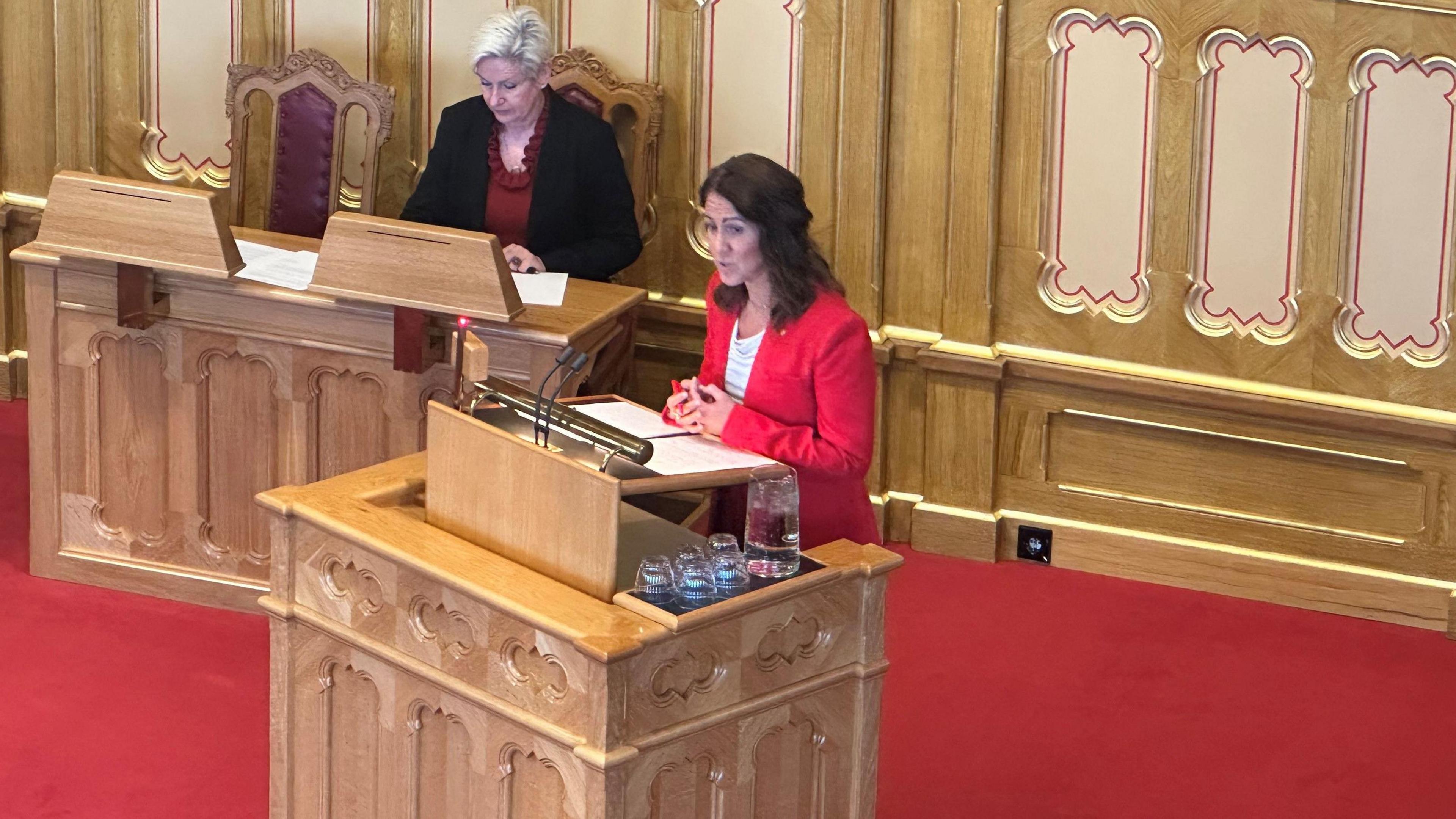
Labour minister Tonje Brenna said there was no need for more Kielland-related schemes
Tonje Brenna, the Minister of Labour and Social Inclusion of Norway, said it was for the employers to pay compensation at the time, not the state.
She said the 2021 review found there was "no basis for conducting a new investigation" as the authorities had done a "thorough job of clarifying the causes of the accident", although "certain weaknesses may have contributed to weakening confidence in the investigation".
Ms Brenna said the Storting had "adopted a statement of regret for the inadequate follow-up [families of the deceased] and survivors experienced after the accident" and other work to probe the impact had been completed.
She said there was therefore "no basis for drawing other conclusions or implementing further measures".
But the win by just two votes means the Norwegian government will now have to determine a compensation settlement.
Follow BBC North East on X, external and Facebook, external and BBC Cumbria on X, external and Facebook, external and both on Nextdoor and Instagram, external.
Get in touch
Do you have a story suggestion for BBC North East & Cumbria?
Related topics
- Published23 January

- Published27 March 2024
